
Office
|

Chapel
|
Haycombe cemetery is one of the only two open cemeteries administered by Bath & NE Somerset Council and the only one in Bath. It opened in 1937 and at the same time the other cemeteries then in use such as Locksbrook, Bellotts Road, Twerton and Lyncombe & Widcombe and St James’ were closed. As reported in Bath Weekly Chronicle and Herald of Sat 17 Jul 1937 (p3), the first burial occurred on 12 July.
Even though other cemeteries were ‘closed’, burials still occurred for those who already had a family grave with spaces remaining and the number of burials in those cemeteries since 1937 is about 20,000.
It has a lodge (now the office), a top chapel and a crematorium. The area for burials originally occupied 30 acres (12 ha). The ground slopes down gradually from the chapel westwards and then down further to the crematorium.
There are about 300 burials a year with another 100-200 burials of cremated remains, with a total in excess of 22,500 since its opening. While the whole site was mapped out for burials, only half was landscaped, the remainder being let out to a farmer. An area was set aside for military graves: UK 168; Australian 61; Canadian 42; New Zealand 14; South African 5; non-Commonwealth 20. There are also communal graves for those killed in the 1942 bombing of Bath. As reported in Bath Weekly Chronicle and Herald of Sat 9 May 1942, a mass burial occurred on 1 May: “Simple coffins, they were; plainly constructed with, in most cases just a name - occasionally several names- and a number, painted in black paint. Some bore only a number, others just one-word explanation, “Unidentified.” There were further mass burials during that week.
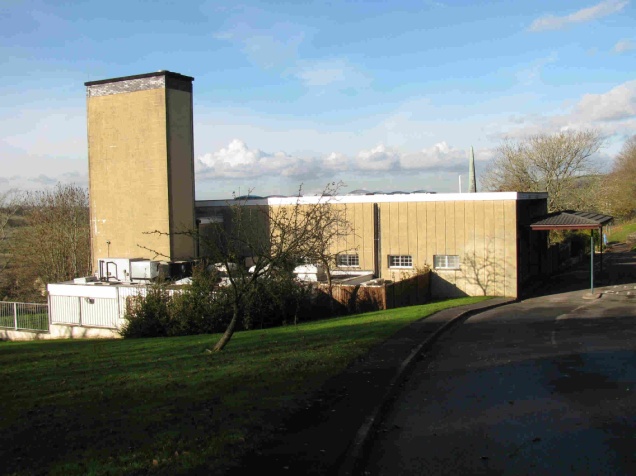
Crematorium
|
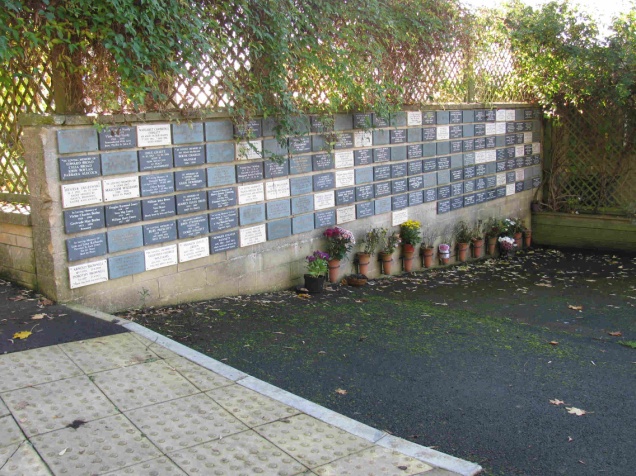
Memorial plaque wall
|
The crematorium at the western end of the site was built in 1961. The number of cremations carried out in the first year was 897 and the average now is about 2,000 a year. There have been over 110,000 cremations to date. There is a memorial or remembrance wall as part of the wall surrounding the crematorium courtyard.
The southern areas (A-F) are consecrated and northern areas (G-J) are unconsecrated. There are a series of shrubberies and gardens near the crematorium used for the scattering of ashes and placing memorials. The styles of the memorials vary in the different sections. The main sections have conventional memorials as headstones with kerb stones while area D has mainly plaques, some with integral vases. In this area there are also boards onto which have been affixed small memorial plaques.
In Sep 2010 approval was given for the area to be extended by a fifth (6 acres, 2.4 ha) to accommodate 7,200 new plots and provide space for memorial trees and benches and a place for ashes to be scattered. This opened in 2012 and is to the northwest of original area.
The Guardian of 11-Aug-2007 reported “A crematorium in Bath is attempting to reduce its carbon footprint by "firing up" brand new burners only when there are enough bodies to justify the operation, it emerged yesterday. The measure means that bodies will sometimes be stored overnight at Haycombe crematorium, a move some funeral directors fear will upset mourners.” In 2012 there was considerable controversy over the replacement of a window in the crematorium building into which was etched a cross. A 5,000-strong petition demanding its reinstatement led to a compromise in which a removable cross will be placed by the window, the council inviting the public for a suitable design.
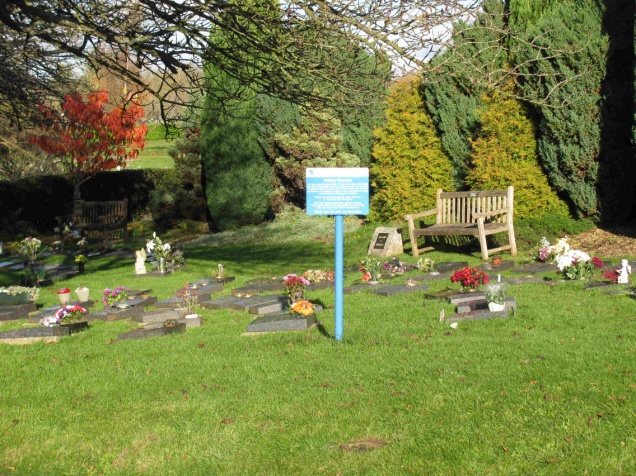
The Alpine Garden area
|
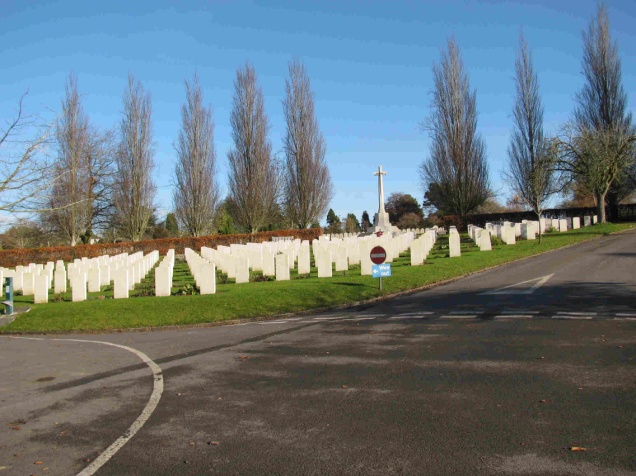
War Memorial and military graves
|
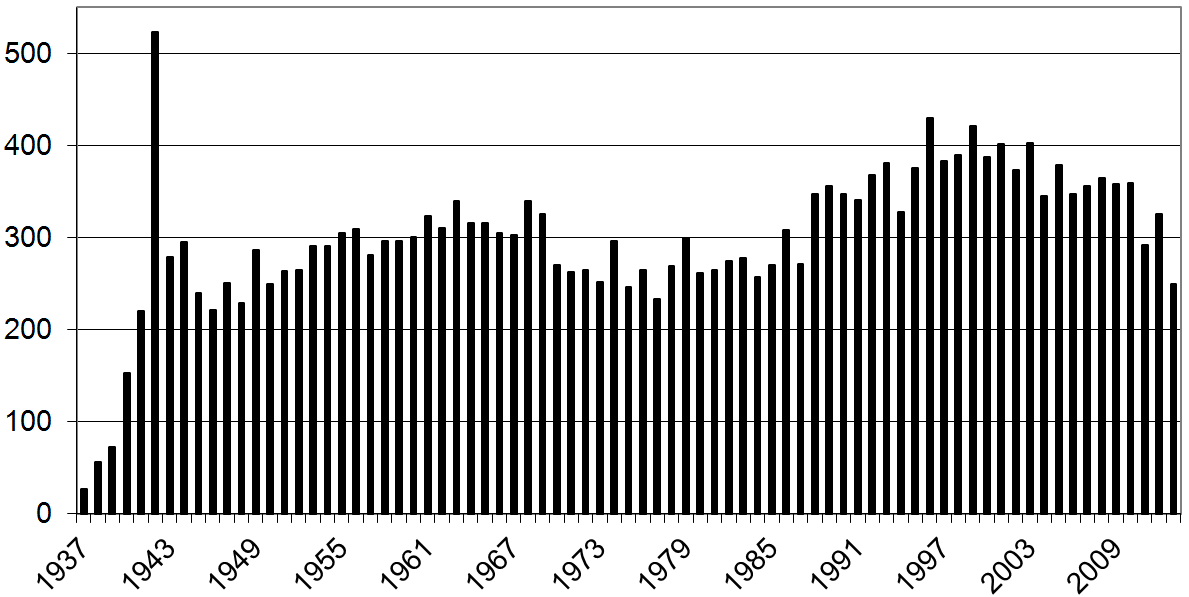
Number of burials per year
|
Documentation
The conventional means of locating a grave in this cemetery is by applying to the council’s Bereavement Services department although this can be done by telephone. The records for the cemetery have been computerised.
A name and location index to the cemetery is available at Bath Record Office.
Limitations
The index information available has ages missing for over 10,000 entries, no addresses, which would have helped in identifying the right individual, and contained many errors in the names. In addition about 200 names found on memorials have no corresponding entries in the index. Some of these are references to predeceased spouses buried elsewhere. Nonetheless there remain some where it would seem that the burial has not been documented.
17-Mar-2024: 3,100 records for 2013-2023 were added but checks on the presence of memorials have yet to be undertaken.
There are about 2,000 cremations per year. For many the ashes are buried elsewhere or scattered on site. Where a formal burial at Haycombe is not carried out it is not possible to specify where a burial may have occurred.